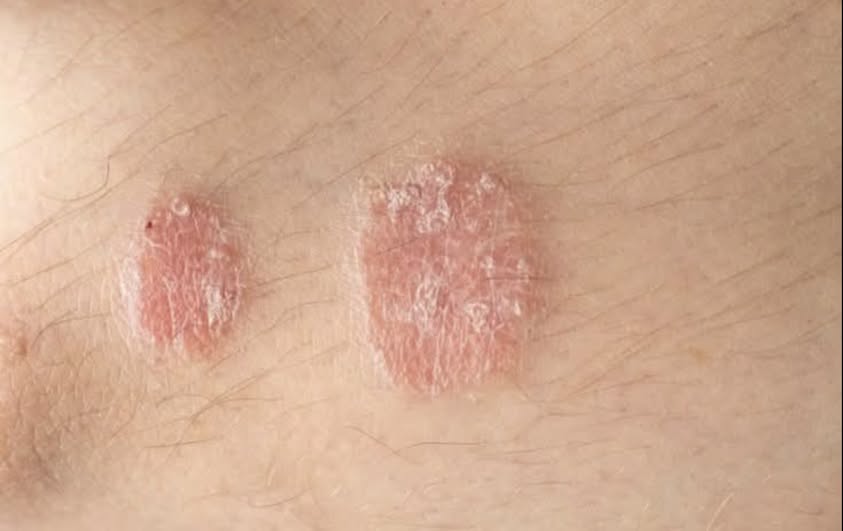
Psoriasis is a chronic autoimmune skin condition that affects millions of people worldwide. While not life-threatening, it can significantly impact a person’s quality of life, causing physical discomfort, emotional distress, and social challenges.
Understanding the Different Types of Psoriasis
Psoriasis presents itself in various forms, each with distinct characteristics:
Plaque Psoriasis: This is the most common type, characterized by raised, red patches covered with thick, silvery scales.
Guttate Psoriasis: This type often develops rapidly, featuring small, drop-like spots that can appear after a strep throat infection.
Pustular Psoriasis: This less common type involves red skin with pus-filled blisters.
Inverse Psoriasis: This type primarily affects skin folds, such as the armpits, groin, and under the breasts.
Erythrodermic Psoriasis: This severe form covers most of the body with widespread redness and peeling skin, requiring immediate medical attention.
“It’s not communicative.” This phrase aptly describes psoriasis in that it is not contagious. It cannot be spread through touch or any other form of physical contact.
Causes and Triggers
The exact cause of psoriasis is unknown, but it is believed to involve a combination of genetic and environmental factors.
Genetic Predisposition: People with a family history of psoriasis are at an increased risk of developing the condition.
Immune System Dysfunction: In psoriasis, the immune system mistakenly attacks healthy skin cells, leading to rapid skin cell growth and the characteristic symptoms.
Common Triggers
While not always predictable, certain factors can trigger psoriasis flare-ups:
Infections: Strep throat infections can trigger guttate psoriasis.
Stress: Emotional and physical stress can exacerbate psoriasis symptoms.
Injury to the Skin: Minor injuries, such as cuts, scrapes, or sunburn, can trigger psoriasis at the site of injury (the Koebner phenomenon).
Certain Medications: Some medications, such as beta-blockers and lithium, can worsen psoriasis symptoms.
Alcohol Consumption: Excessive alcohol consumption can trigger or worsen psoriasis flare-ups.
Smoking: Smoking is a significant risk factor for developing severe psoriasis and can increase the severity of existing symptoms.
Diagnosis and Treatment
Diagnosing psoriasis typically involves a thorough physical examination by a dermatologist. In some cases, a skin biopsy may be necessary to rule out other skin conditions.
Treatment for psoriasis focuses on managing symptoms and improving quality of life. While there is no cure, various treatment options are available, including:
Topical medications: Creams, ointments, and lotions containing corticosteroids, vitamin D analogs, or salicylic acid can help reduce inflammation and remove scales.
Light therapy: Exposure to ultraviolet (UV) light can slow skin cell growth and reduce inflammation.
Systemic medications: For moderate to severe psoriasis, systemic medications such as oral medications or injections may be prescribed to suppress the immune system.
Living with Psoriasis
Living with psoriasis can be challenging, but with proper management and support, individuals can effectively manage their condition and maintain a good quality of life.
Key takeaways:
Recognize the signs and symptoms of psoriasis.
Consult a dermatologist for proper diagnosis and treatment.
Identify and avoid personal triggers.
Practice stress management techniques.
Maintain a healthy lifestyle, including a balanced diet and regular exercise.
Connect with other individuals living with psoriasis through support groups or online communities.
By understanding the nature of psoriasis, seeking appropriate medical care, and adopting healthy lifestyle habits, individuals can effectively manage their condition and live fulfilling lives.
Disclaimer: This information is for general knowledge and informational purposes only and does not constitute medical advice. Always consult with a qualified healthcare professional for any health concerns or before making any decisions regarding your health or treatment.